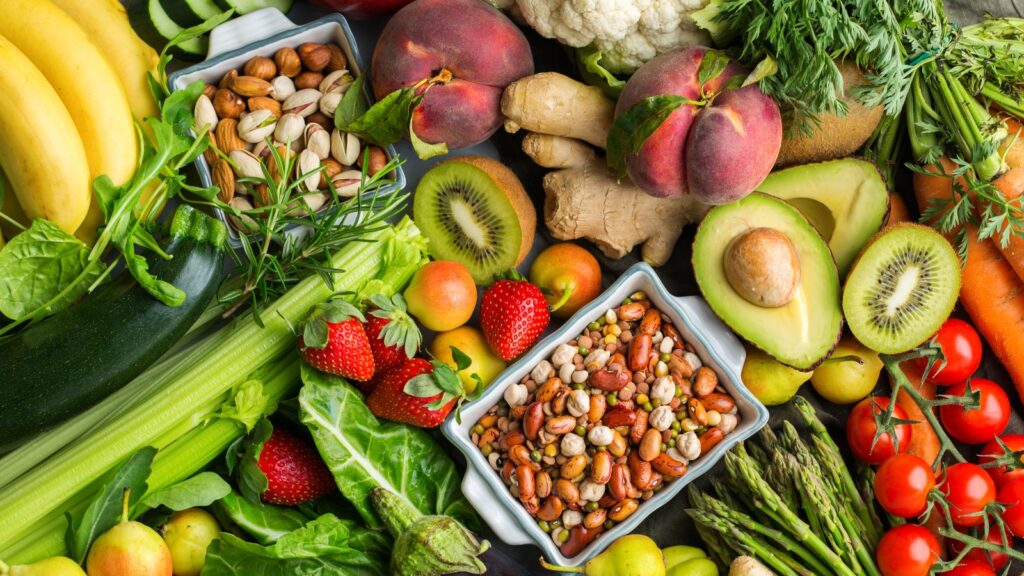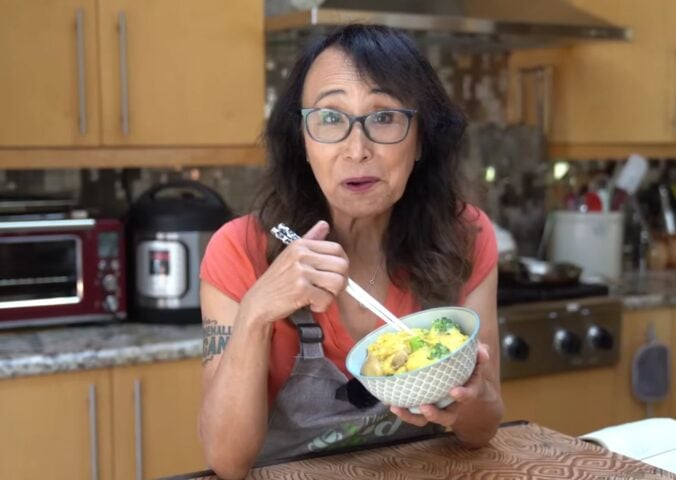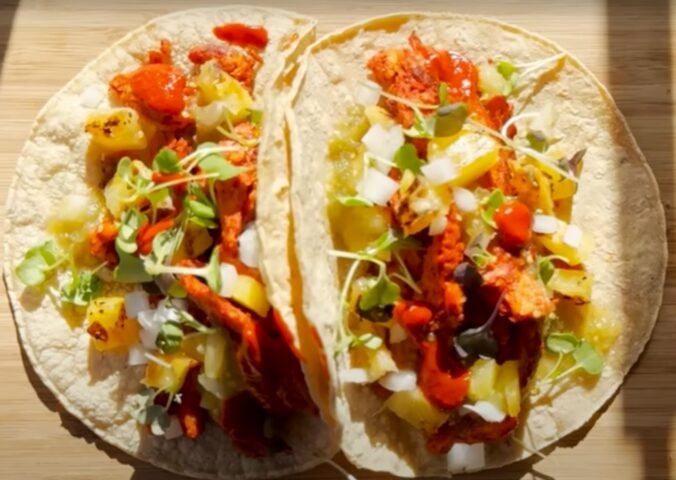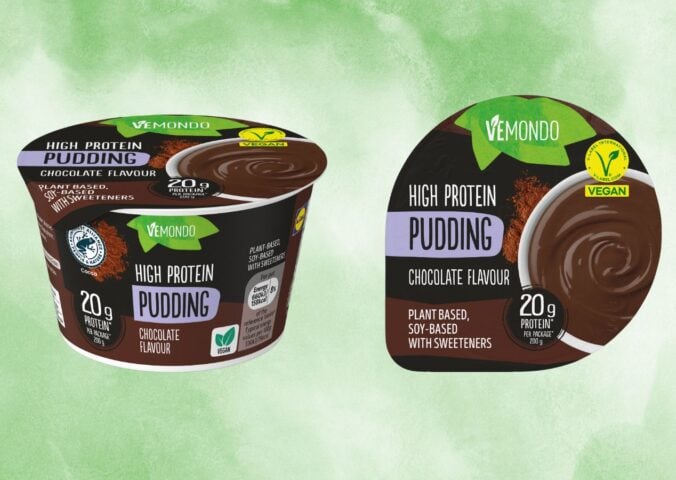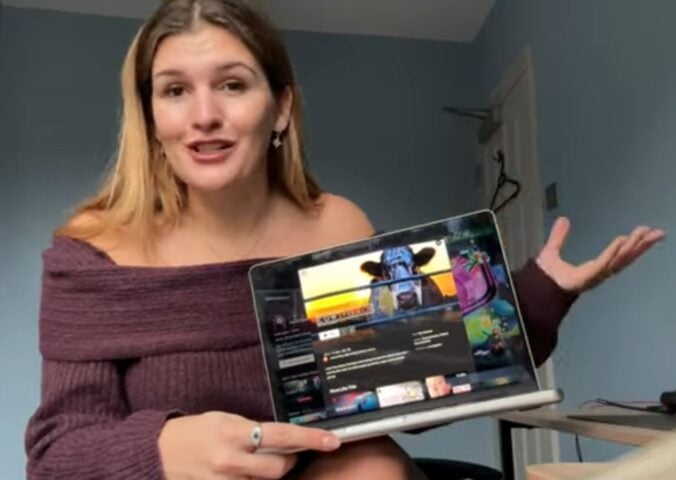It gets tiresome, people telling us that we need meat for iron. But this old myth is deeply entrenched.
Meat does contain iron, in the same way that we do! But it’s not the best source for a number of reasons. If you want the good stuff, read on.
Why do we need iron?
Iron is an essential part of the oxygen-carrying proteins hemoglobin and myoglobin.
Haemoglobin, found in red blood cells, carries oxygen from your lungs to the tissues in your body.
Myoglobin stores oxygen in your muscles so that they can use it if your oxygen supply is insufficient, for example, during vigorous exercise.
Iron also makes up part of many different proteins found in the body. It’s a vital mineral and deficiency can lead to tiredness, weakness, feeling cold, inability to concentrate, a weakened immune system, and anemia.
Iron occurs in two forms:
- Haem iron is found in meat and fish and is readily absorbed in the body where it can accumulate and cause damage. Excess haem iron encourages the production of free radicals which damage DNA. It’s also associated with raising heart disease risk.
- Non-haem iron is the type plant foods contain (animal foods contain a little too). It is absorbed by the body in smaller amounts, according to your needs. It’s not stored in the same way as haem iron so cannot build up to excessive levels but you do need a steady supply
How much iron do I need?
Women up to the age of 50 need around 14.8 milligrams a day according to official guidelines, while men (and women over 50) need 8.7 milligrams a day.
Women need more as they lose iron during menstruation. If you have very heavy periods, you could be at risk of iron deficiency anemia and may need to take iron supplements.
The best plant-based sources
You can get all the iron you need from a varied vegan diet. The best sources include whole grains (quinoa, wholewheat spaghetti, and wholemeal bread), fortified breakfast cereals, pulses (lentils, tempeh, tofu, baked beans, kidney beans, and peas), seeds (pumpkin and sesame seeds and tahini), dried fruit (apricots and figs), seaweed (nori) and dark green leafy vegetables (kale).
The idea that spinach is exceptionally high in iron can be traced back to a simple mathematical error when German chemist Erich von Wolf misplaced a decimal point making the iron content of spinach seem ten times higher than it really is.
This caused the popular myth that cartoon character Popeye helped to spread even further. Spinach can boost your iron intake but you need to include other iron-rich foods too.
Some herbs and spices contain considerable amounts and although they are used sparingly, regular use will contribute to your overall iron intake. For example, three teaspoons of mixed dried herbs contain around two milligrams.
Vitamin C increases iron absorption and the amount in eight strawberries or a 200ml glass of orange juice may increase it three- to four-fold. To boost absorption with breakfast, swap your morning cuppa with a glass of freshly squeezed orange juice.
For main meals, combine iron-rich food with vitamin C-containing foods: salad made with watercress, dates, pumpkin seeds, and slices of orange or beans on toast with freshly squeezed apple juice.
Are we getting enough?
Government surveys have found low intakes in some people, particularly in girls and women.
Almost half of all girls, regardless of diet, aged 11 to 18 are failing to meet even low targets along with over a quarter of women aged 19 to 64.
Boys and men appear to have higher intakes. But still, nine percent of boys aged 11-18 are falling short.
It’s a myth that you need to eat meat to get iron. One of the largest studies of vegetarians and vegans in the world, the European Prospective Investigation into Cancer and Nutrition (EPIC) Oxford study, compared the diets of over 18,000 meat-eaters, 4,500 fish-eaters, 6,600 vegetarians and 800 vegans.
They found that vegans had the highest intake of iron, followed by vegetarians then fish-eaters with meat-eaters coming last.
The American Dietetic Association says that iron deficiency is no more common among vegetarians than meat-eaters.
Top tips
Phytate found in unrefined grains, pulses, and seeds can bind to iron (and other minerals, such as calcium, magnesium, and zinc) and reduce absorption.
Soaking pulses and discarding the water can help and sprouting grains, pulses, and seeds may increase iron absorption by 20-62 percent.
Increasing the amount of time bread is fermented can also help.
Remember though, wholemeal bread and brown rice may contain around two to three times the amount of iron found in white bread and rice.
So, even if phytate lowers absorption from these foods, the starting point is much higher, making wholegrain foods the healthier option as they also contain more vitamins, minerals, and fiber.
Polyphenols are substances in plants that possess antioxidant properties that may reduce the risk of heart disease and cancer. Tannins are a type of polyphenol found in tea and red wine that bind non-haem iron and may reduce absorption.
However, research shows that tea drinking doesn’t influence iron status in healthy people who eat a well-balanced diet. If you want to be sure, wait at least one hour after eating a meal before drinking tea.
Too much of a good thing
It’s unlikely that you’d get too much iron from a vegan diet. But, if you take supplements, taking high doses (over 20 milligrams) can cause constipation, nausea, vomiting, and stomach pain.
Extremely high doses can be toxic, especially for children. So, if you have supplements at home, keep them in a safe place.
This article has been republished with permission from Viva! You can read the original piece here
